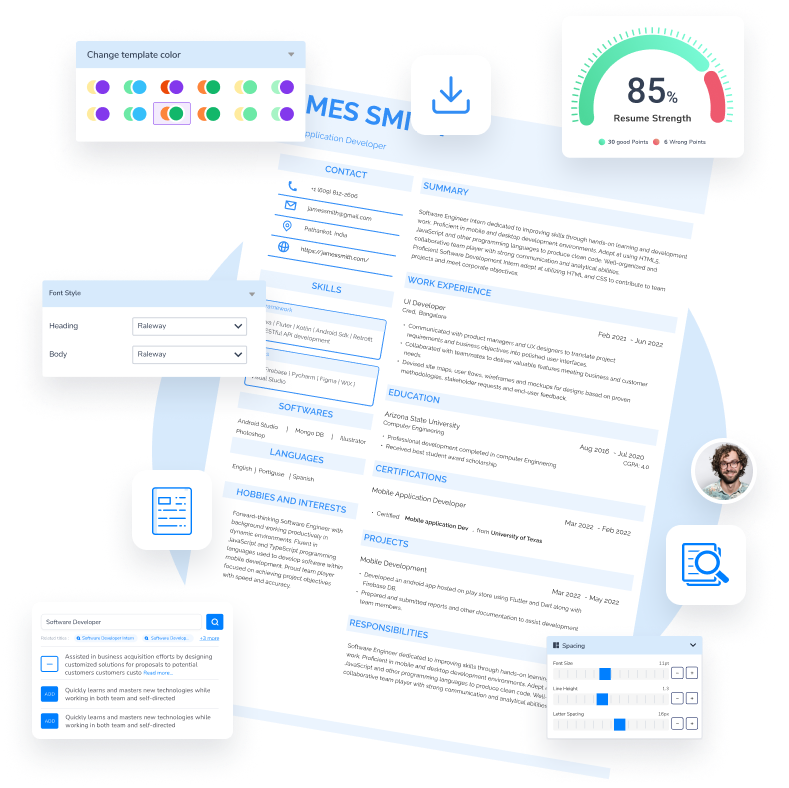Smart Career Goals: Achieve in Just 6 Months
5 Min read

Are you working hard to outshine in your career and still unable to get the one you want? Have you checked on your Goals? Are your goals set per your career and life? If not, it's high time to set your goals to fulfil your dreams.
Setting career goals is a highly effective method for visualizing your future and inspiring yourself to make your dreams come true. You can decide where you want to go in life by creating goals.
Knowing exactly what you want to accomplish helps you focus your efforts in the right places.
And having specific career goals will help you stay motivated, move forward in your career, and have something to strive for. Keeping your career development goals SMART is as essential as achieving them.
‘SMART’ stands for Specific, Measurable, Attainable, Relevant, and Time-bound.
The theory of ‘SMART goals’ was developed by George Doran, Arthur Miller and James Cunningham in their 1981 article “There’s a S.M.A.R.T. way to write management goals and objectives”.
‘SMART’ is a useful way of making goals more efficient.
Smart goals can be characterized as a mnemonic goal setting technique that is frequently used to measure the growth and success of an entire organisation, its sales numbers, and its personnel.
Being as specific as possible can help you attain your goals with precision. It is necessary to refine your objective in order to comprehend how it might be attained. For instance, rather than stating that you want to become a leader, you may add, "I want to obtain a management job at an ed-tech firm."
In order to reach a goal, we must be able to quantify it. What evidence do we have that we are advancing towards the objective?
In the previous step, a clear objective was established. How can we determine if we are getting closer or not? It is essential to set quantifiable objectives, as this will allow you to analyze and alter your course of action as necessary.
Recognize your accomplishments and acknowledge your efforts as you make progress towards a goal. Regarding the previous issue, an example of a measurable objective would be, "I will apply for four managerial roles at ed-tech start-ups."
Your goals should be precise so that you can concentrate on your efforts or be fully inspired to accomplish them. Try to get the answer for W’S - What, Why, Where, Which & Who while setting your goals.
The more specific your goals will be, the more the chances to accomplish them.
You have set up your goal, but how will you get to know that you are successfully moving towards it? Thus, it is important to keep your goals measurable. With measurable goals, you can assess your progress.
You can set short-term goals, and then progress the long-term goals. Achieving small deadlines can boost you up and keep motivated to achieve your primary goal.
It is significant to set goals that can be practically attained within a set period. Keeping your goals realistic keeps you motivated to achieve them. It should be challenging for you, while still being doable.
Think about whether or not your goals are relevant when setting them. It involves making sure that your goal matters to you and that it is somehow connected with your other important objectives and contributes to your long-term objectives. Taking into account your overarching goals, check whether the time and efforts you are putting into the short-term goals are worth it and then take the steps towards it.
What’s the meaning of setting goals without a timeframe? It’s just like a body without a soul. Time-bound objectives make it easy to complete the goals and stay focused and motivated.
This SMART goal criterion helps you keep your daily duties from taking precedence over your longer-term objectives.
To set SMART career goals for the next 6 months, keep your vision clear about your short-term goals and long-term goals. And follow the mnemonics of SMART that demystifies goals by breaking them into small steps taking into account the timeframe set by you.
Additionally, here are some things you should follow:
Start with baby steps - Take small steps initially until you get used to it and then gradually increase your daily goals.
Write down your goals - Write your goals such that you can see them regularly and remember what is waiting for you.
Check on your progress regularly: The best amount of time to complete any task is 6 months. Set your timetable back 6 months and include regular checkpoints or progress indicators that will show you are moving in the right direction.

Try Now for Free!











